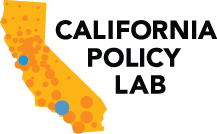- By:
- Category:

San Francisco, CA, Feb 27th, 2023 — Approximately 766 San Francisco residents could be eligible for referral to CARE (Community Assistance, Recovery, and Empowerment) Court when the program begins, according to new research by the Benioff Homelessness and Housing Initiative at UCSF and the California Policy Lab. California passed the CARE Act in 2022 to provide behavioral health and housing services to individuals with psychotic spectrum and schizophrenia disorders who are deemed unable to care for themselves. CARE Court will start in 2024 throughout the state, but San Francisco, Los Angeles, and several other counties are working to implement the law in 2023.
The researchers analyzed anonymized urgent and emergent care service records during FY 19-20 (July 1, 2019 to June 30, 2020) linked to data from the criminal legal system to create the estimates, describe the characteristics of people who may be eligible for referral, and understand what supports people were already receiving. There were 766 SF residents who had at least two instances of a psychosis diagnosis as well as four or more urgent visits for Serious Mental Illness (SMI) during FY 2020 and who are projected to be eligible for referral to CARE Court when it begins.
“We serve high-needs people in the emergency department every day and our goal is to quantify how many of them would likely be eligible for referral to CARE Court when the program begins,” explains co-author Dr. Maria Raven, Chief of Emergency Medicine at UCSF Medical Center and co-lead of the Benioff Homelessness and Housing Initiative program on adults with complex needs. “Despite their high needs, only a small share of people were enrolled in intensive case management, had been assessed for housing prioritization, or had been housed in permanent supportive housing. Those are key challenges that will need to be addressed.”
“Every day, San Franciscans witness how we, as a city and as a community, are failing to help people with psychotic spectrum and schizophrenia disorders, many of whom are also struggling with substance use disorders and housing instability,” adds co-author Dr. Johanna Lacoe, Research Director at the California Policy Lab’s UC Berkeley Site. “If CARE Court is going to improve on the status quo, there will need to be much deeper engagement to connect people to services while also significantly increasing the housing services available to these individuals.”
“We need greater collaboration and coordination across the agencies and departments serving this high need complex population in San Francisco,” said co-author Dr. Lisa Pratt, Jail Behavioral Health Services. “Brief episodic care is important but we must also provide a path to longer term stability and healing.”
Key research findings – of the 766 people projected to be eligible for referral to CARE Court:
• 83% reported being homeless in the past year;
• The rate of one type of care – intensive case management – for this group is low, with about 27% of the potentially eligible population receiving it in FY2020;
• 76% have diagnoses for methamphetamine and other stimulant use disorder, and many have diagnoses for alcohol use disorder (51%) and cocaine use disorder (39%);
• Over one quarter of the 766 individuals (27%) had an arrest in San Francisco within the last year.
Additional background
To identify individuals who may be eligible for CARE Court referral, this brief uses linked healthcare and criminal legal system data from the City and County of San Francisco from FY19-20 (July 1, 2019 to June 30, 2020) and is guided by eligibility definitions provided in the CARE Court legislation. The healthcare data are from the San Francisco Department of Public Health Coordinated Care Management System (CCMS). The data comprise records of nine urgent and emergent physical health, mental health, and substance use disorder services provided by San Francisco healthcare centers: emergency services, medical inpatient hospitalization, medical urgent care, psychiatric emergency services, psychiatric inpatient hospitalization, psychiatric urgent care, sobering center, medical withdrawal management, and social withdrawal management. The criminal legal system data are from the San Francisco Sheriff’s Office (SFSO) and San Francisco District Attorney’s Office (SFDA), and include data on county jail bookings and arrests referred to the SFDA’s office for prosecution. Data from both sources include general demographic information for each individual and are linked via a common identifier and anonymized for analysis. There are several limits to the data used in this research which are described in greater detail in the policy brief.
The Benioff Homelessness and Housing Initiative at the University of California, San Francisco, strives to prevent and end homelessness by conducting impact-oriented research and translating evidence into action. To reduce the number of people experiencing homelessness, BHHI conducts rigorous research to create effective, equitable, and evidence-based solutions. Our studies develop in dialogue with communities to have a direct impact on issues they face. Evidence informs decision makers and practitioners about effective homelessness and housing policies, innovative strategies, and scalable solutions to create healthier communities in the San Francisco Bay Area, the state of California, and across the United States.
The California Policy Lab creates data-driven insights for the public good. Our mission is to partner with California’s state and local governments to generate scientific evidence that solves California’s most urgent issues, including homelessness, poverty, criminal justice reform, and education inequality. We facilitate close working partnerships between policymakers and researchers at the University of California to help evaluate and improve public programs through empirical research and technical assistance.
